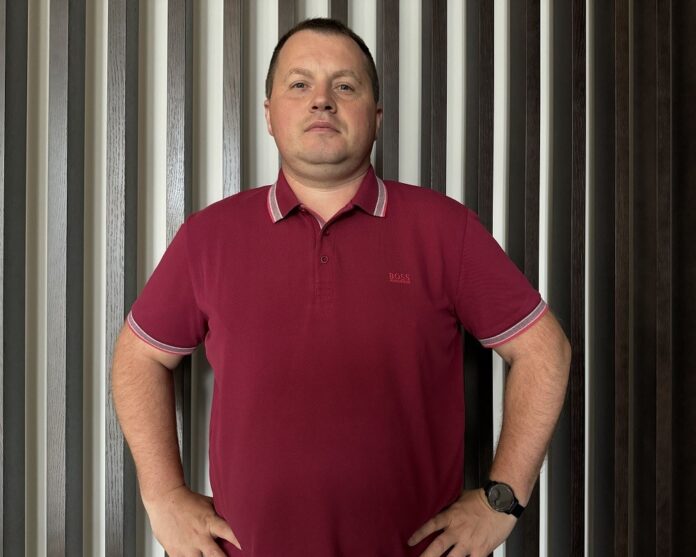The global ready-to-eat food market size is valued at USD 404.78 billion in 2024, and the market is projected to grow to USD 626.13 billion by 2032, according to an analysis by Fortune Business Insights. The growing demand is primarily driven by convenience – the modern pace of life provokes more and more consumers to rely on ready-made food options. At the same time, an important advantage is the possibility of long-term storage. These user preferences, in turn, are encouraging manufacturers to utilize advanced technologies and offer out-of-the-box solutions. Among them is Ukrainian businessman Yevhenii Shevchenko, who has introduced a revolutionary technology for preparing ready-to-eat, long-lasting food. Importantly, one of the target audiences for his invention includes the most socially vulnerable people – the disabled, low-income citizens, and the homeless, as well as those deprived of normal nutrition in areas lacking the necessary infrastructure.
Shevchenko’s career path is largely based on family tradition: his older relatives also worked in public catering and food supply. After receiving a degree in International Economic Relations, he followed a similar path, providing food for budgetary, social, and commercial structures for many years.
“Working in food supply in the social sphere always leads to communication with socially vulnerable groups,” Shevchenko reflects. “Considering my experience working in an enterprise of the association of citizens with disabilities since 2006, I closely encountered the real problems of such groups, how unprotected they are, and how much they need help and support. This is one of the most vulnerable segments of our society, so I immediately decided to help the urban society of people with disabilities.” In this sector, Yevhenii focused on various social projects aimed at supporting the city’s disabled population and addressing their current problems, including food issues. At the same time, he studied and modernized the family experience in providing food for various budgetary and commercial structures.
Since 2014, he has ventured into business and founded his own company. He immediately introduced an innovation – a new technology for preparing ready meals using sterilization and packaging them in soft food film with a long shelf life, called “retort pouch.”
“The idea of developing this direction – long-term storage food – came to me precisely during my work in the social sphere, including at remote sites where there are no normal communications and proper living conditions,” recalls Yevhenii.
Shevchenko supplied his products for ready meals to state schools and gymnasiums, educational and rehabilitation children’s centers, hospitals, industrial enterprises, correctional institutions, military, rescue, and law enforcement structures (including the National Police and the National Guard), as well as to socially vulnerable groups such as adult neuropsychiatric boarding schools, orphanages, and societies of people with disabilities. As a result, he achieved a full production cycle, freeing social institutions from the need to purchase products, cook food, and control the quality of all processes. The problem of product quality and preservation was successfully solved by his proposed preparation technology using sterilization and packaging in retort pouches.
Initially, his area of application was his native city of Dnipro and the entire Dnipro region, a vast area. He continues to work in the charitable sector, delivering full meals as humanitarian aid to places without normal living conditions or electricity. From the very beginning, Shevchenko was concerned with implementing special certification for food safety and quality while simultaneously modernizing the supply logistics chain according to global standards. He found creating a network of kitchen factories, meeting special technical conditions, to be the most convenient for the full cycle of work – so that food was prepared 100% centrally and delivered to final destinations, where it was reheated and served to consumers. According to the unique cooking method, products are cooked in a specially designed autoclave under high pressure in special modes developed by technologists through years of testing. Sterilization at all stages ensures 100% hygiene. In addition to long-term multiple testing of tools, they also worked directly with the products: all dishes underwent strict laboratory control of organoleptic, physicochemical, microbiological, bacteriological, and radiological indicators. The final stage is the innovative packaging, invented to replace the usual tin or glass jars, which preserves all vitamins and minerals and maintains the taste qualities.
The latter is significant because Yevhenii Shevchenko’s company supplies ready-made dishes according to traditional recipes – soups, cereals, legumes, potatoes with meat, mushrooms, and vegetables. The company is now developing lines of fish and seafood dishes and vegetarian options. All these dishes have a familiar full appearance, unlike the standard consistency of cream soup or mashed substance typical for this type of food. Shevchenko personally participated in market monitoring to form the assortment. Importantly, they retain all properties for up to 24 months without preservatives and stabilizers. Set with additional products – crackers, rusks, drinks, seasonings, and cutlery – are formed based on ready-made dishes. Such daily comprehensive sets for a day – consisting of breakfasts, lunches, and dinners – packed in multilayer laminated retort pouches can be transported to any remote destinations, where they can be reheated without fire or consumed directly from the package, as they do not lose their taste qualities even when cooled.
“Our technology excels in quality, contains no preservatives, and is easy to use. Most importantly, it provides a full hot meal, not just dry food,” comments Shevchenko. “Ready meals can be heated with hot water or alternative energy sources, which we will provide along with the ready meals and sets.”
The international value of this invention lies in its easy adaptation to the conditions of any country, accommodating different taste preferences, gastronomic habits, and culinary traditions. The results of using Shevchenko’s innovation in Ukraine, where his method of cooking long-lasting food was granted a utility model patent, were so impressive that it is now time to enter the global market and partner with other countries. To familiarize themselves with European cooking technologies, the company’s leading technologists visited factories in Italy, Belgium, and other EU countries. Currently, Yevhenii plans to collaborate with the USA.
“Our specialists have developed a technology that can be adjusted to meet customers’ requests and national interests,” explains Yevhenii. “Its uniqueness lies in the fact that we can develop a method for preparing long-term storage ready meals for any consumer group and any national tastes.”
Shevchenko’s invention is necessary worldwide. However, it is especially important for those who work in the social sphere. While it is impossible to completely eradicate social problems, and no robots can fully address this issue, making life easier for the most vulnerable people is a feasible task that can be realized through human ingenuity and aspiration. Evgeny Shevchenko’s company is already contributing to solving this common problem.
Find a Home-Based Business to Start-Up >>> Hundreds of Business Listings.

















































